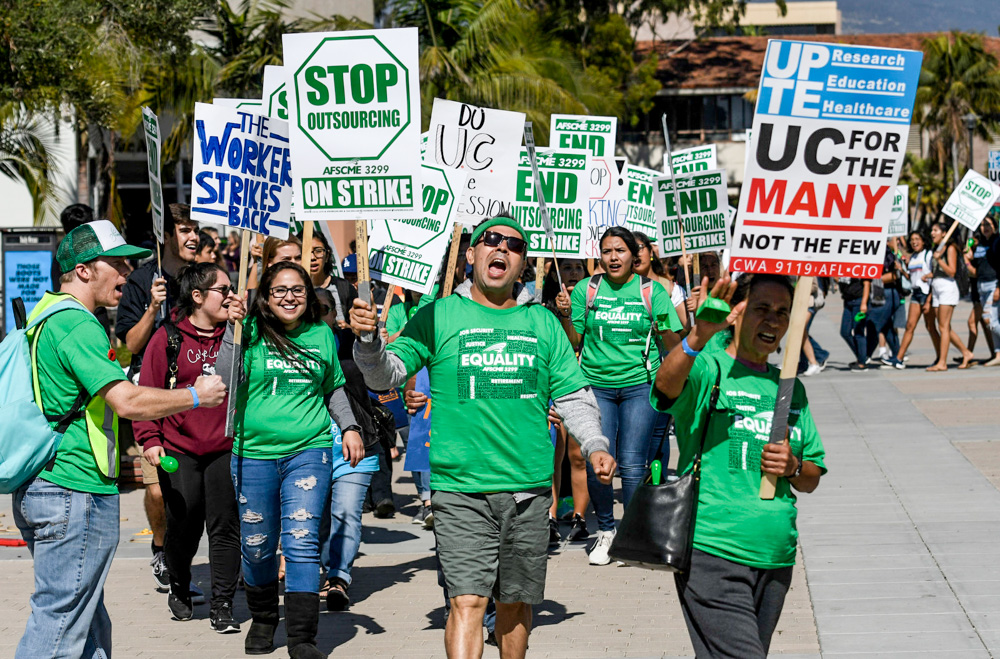UC Patient-Care Workers Hold Three-Day Strike
One in Six Patient-Care Jobs Being Outsourced

UC Santa Barbara workers are in the midst of a three-day strike being held across all 10 University of California campuses. The strike began early Tuesday morning and will continue through Thursday night. The walk-outs are focused on patient-care workers’ needs and job security, but the three-day event has also seen heavy participation from service workers striking in solidarity with their patient-care counterparts. Service workers held their own strike early May 2018 and received support from patient-care union members. Both service and patient-care workers are working under implemented contracts and have not reached agreements with the UCs.
Patient-care workers have noticed an increase in outsourcing of their positions and are worried about the future of their jobs. One out of every six jobs in patient care in the UC system is being outsourced, said Michael Kile, former intern with AFSCME Local 3299 Union. The outsourcing of jobs has kept wages from rising and is forcing current employees to compete against workers receiving low wages and no benefits. Linda Metcalfe is a patient-care worker at UCSB and frustrated with the stagnant wages and rising premium costs. “It’s like the longer you’re here, the less you get,” said Metcalfe. “It shouldn’t be like that. They should at least be keeping up with inflation.”
The University of California disagrees with claims of increased outsourcing and released a statement alleging that AFSCME union leaders are spreading false information. “Over the past five years at UC, the number of patient care employees has increased by 18.9 percent (2,450 workers) and the number of patient care employees has increased by 14.4 percent (1,206 workers), consistent with the growth of all union workers by 9.9 percent (7,687 workers). Meanwhile, spending on campus service contracts has stayed relatively flat.”
Union workers stand by their claims. The UCs are saving money at the expense of workers’ security, said Kile. Ruby Mijangos is a dental assistant at UC Santa Barbara and is worried about the future of her job. According to Mijangos, the university has been hiring more students and “temporary” workers, who are being paid less and scheduled fewer hours to keep them from receiving benefits. “They do great but are being underpaid,” said Mijangos. The lower-paid workers are putting union workers’ positions, pay, and benefits in jeopardy. “How can we give students our best if we are worried about our tomorrow and our position?” asked Mijangos.
Mijangos describes her job as being the communicator between student and doctor. “I set the tone when [the students] walk in. I make sure they are heard and understood by the doctor,” said Mijangos. “We’re just hoping to be heard too. We’ll fight until we’re heard.”
However, the UC is adamant that the strike will get union workers nowhere. “AFSCME leaders’ organized theatrics and intentional disruptions do nothing to shift the university’s stance on their unreasonable demands,” wrote the UC in a statement. “UC hopes AFSCME leaders, given their wasted efforts, will now engage in productive, sensible negotiations, rather than blindly declare victory for a demonstration that moved them no closer to a better deal.”
Editor’s Note: This story was updated October 26, 2018 to include statements from the University of California.


